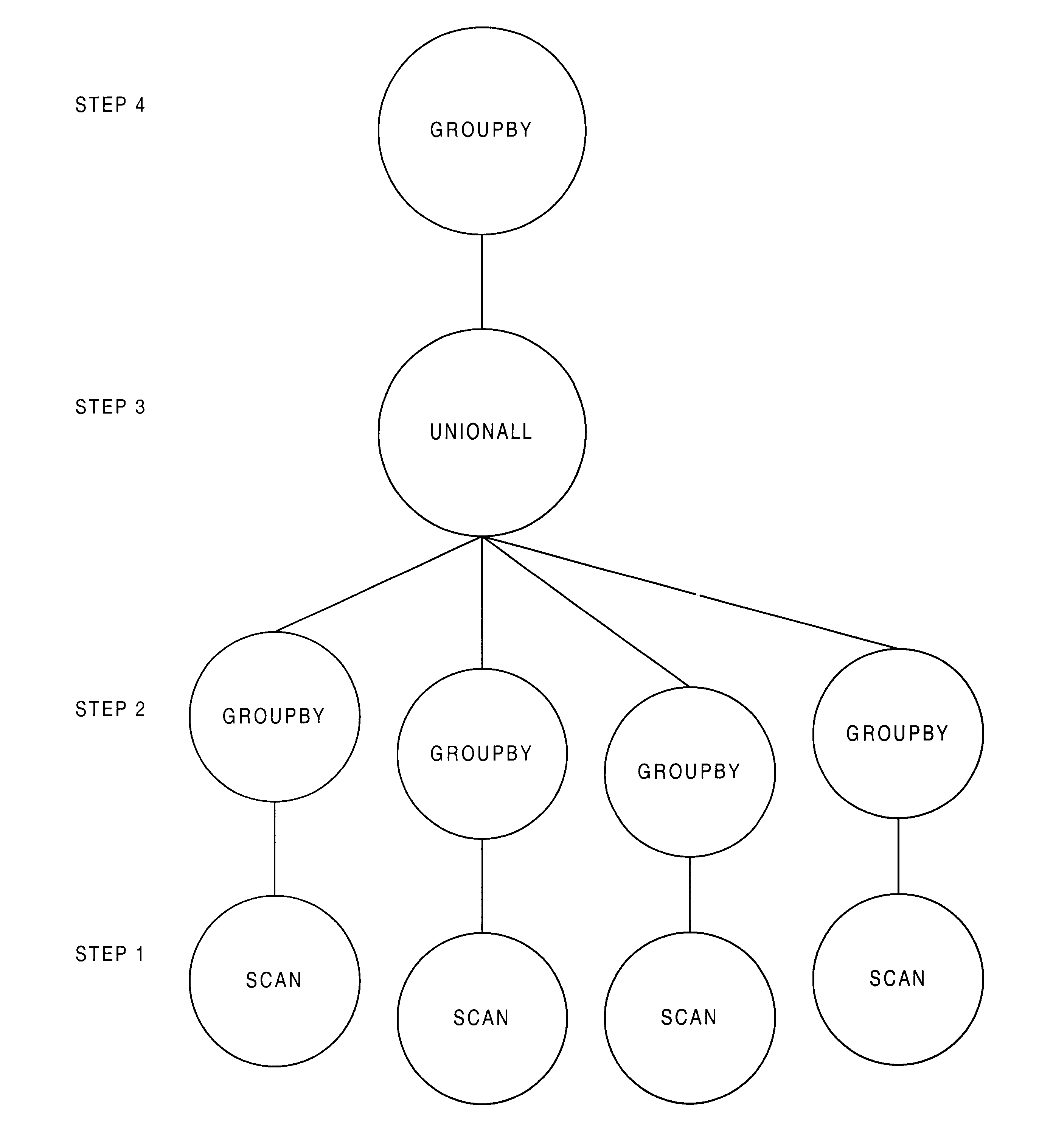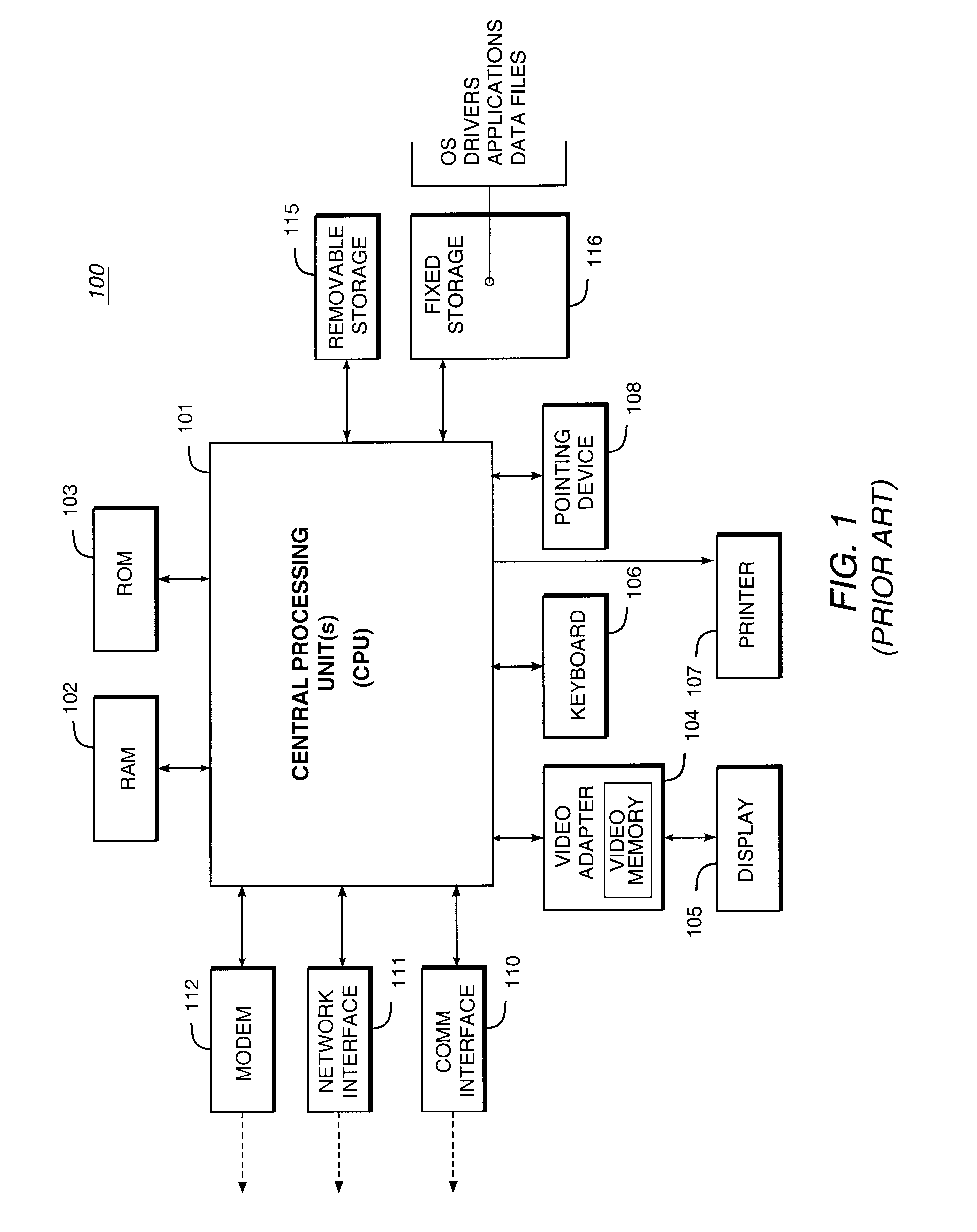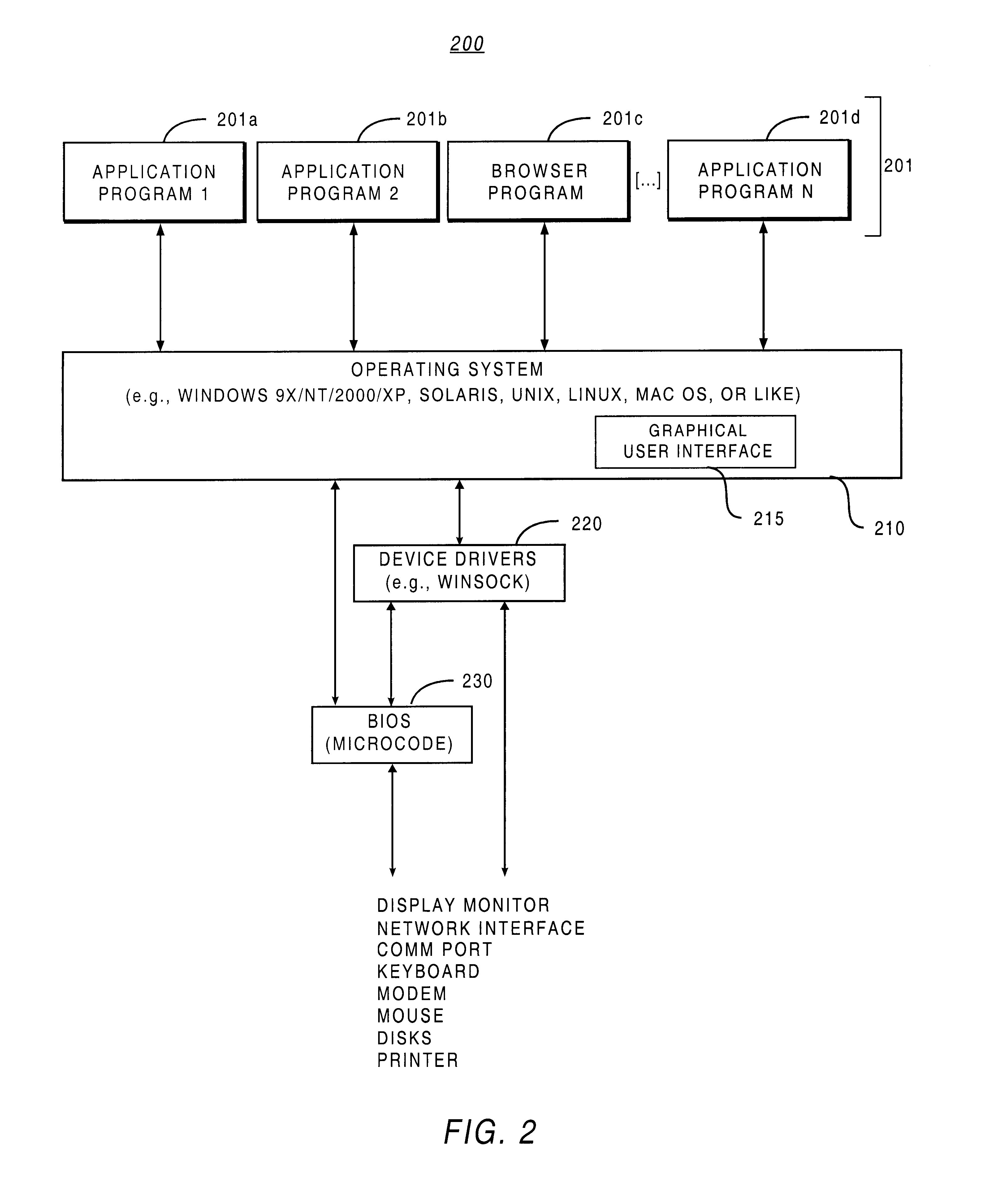Database system providing optimization of group by operator over a union all
a database system and operator technology, applied in the field of data processing environments, can solve the problems of system performance, high cost of dropping one-twelfth of the rows from a large physical table, and requiring a considerable number of database pages to add to this index
- Summary
- Abstract
- Description
- Claims
- Application Information
AI Technical Summary
Benefits of technology
Problems solved by technology
Method used
Image
Examples
Embodiment Construction
The following description will focus on the presently preferred embodiment of the present invention, which is implemented in a desktop application operating in an Internet-connected environment running under a desktop operating system, such as the Microsoft.RTM. Windows operating system running on an IBM-compatible PC. The present invention, however, is not limited to any one particular application or any particular environment. Instead, those skilled in the art will find that the system and methods of the present invention may be advantageously embodied on a variety of different platforms, including Macintosh, Linux, BeOS, Solaris, UNIX, NextStep, FreeBSD, and the like. Therefore, the description of the exemplary embodiments that follows is for purposes of illustration and not limitation.
I. Computer-Based Implementation
A. Basic System Hardware (e.g., for Desktop and Server Computers)
The present invention may be implemented on a conventional or general-purpose computer system, such ...
PUM
 Login to View More
Login to View More Abstract
Description
Claims
Application Information
 Login to View More
Login to View More - R&D
- Intellectual Property
- Life Sciences
- Materials
- Tech Scout
- Unparalleled Data Quality
- Higher Quality Content
- 60% Fewer Hallucinations
Browse by: Latest US Patents, China's latest patents, Technical Efficacy Thesaurus, Application Domain, Technology Topic, Popular Technical Reports.
© 2025 PatSnap. All rights reserved.Legal|Privacy policy|Modern Slavery Act Transparency Statement|Sitemap|About US| Contact US: help@patsnap.com



